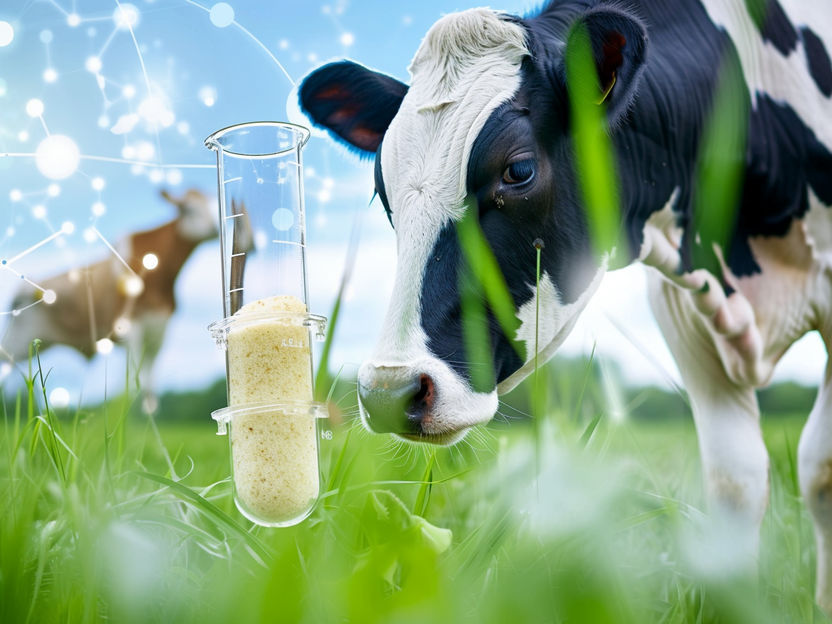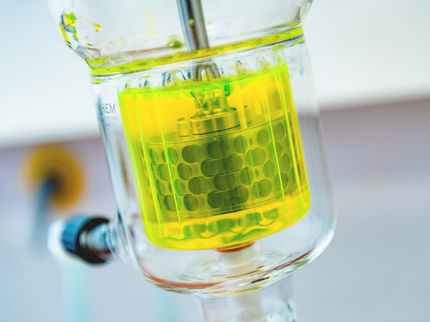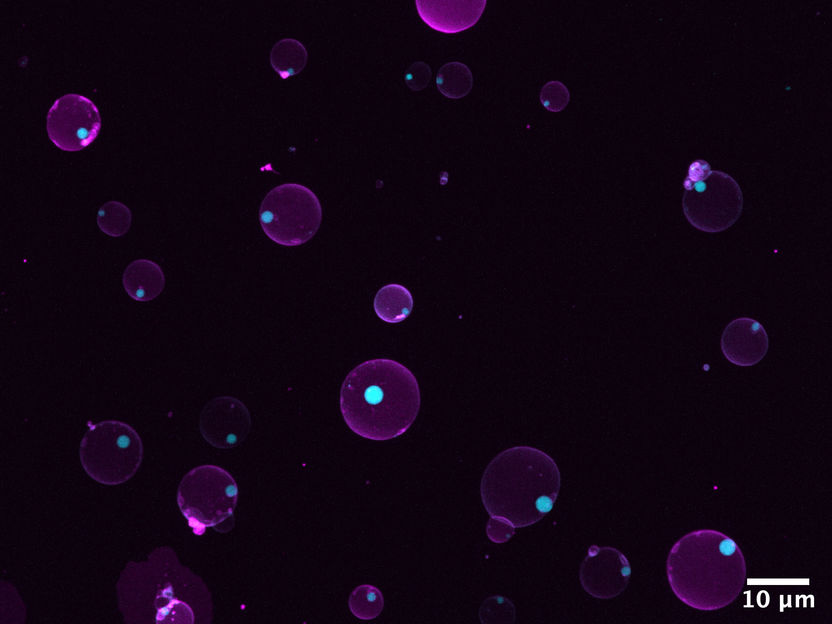Biotechnologists want to replace petroleum-based substances with a bacterium from bovine stomachs
The cow as climate savior?
Petroleum is found in most of our everyday products, for example in diapers and detergents. In future, such substances could be replaced by biodegradable raw materials that a bacterium can produce from the stomach of cattle. Scientists at Saarland University are researching how this could work together with colleagues from research and industry in a project funded by the German government.

Cows could play a part in scientists developing climate and environmentally friendly technologies with their help (symbolic image).
Computer-generated image
The cow as a climate saver? This is unlikely to be the public perception. On the contrary: the rearing of cattle and the consumption of beef are considered climate sins par excellence. And yet ruminants could play a part in scientists developing climate and environmentally friendly technologies with their help.
To be more precise, it is not the cow itself, but Basfia succiniciproducens. This bacterium, which is involved in digestion in the stomachs of cattle, is the focus of scientists led by Christoph Wittmann, Professor of Systems Biotechnology at Saarland University. Together with colleagues from the Universities of Marburg and Kaiserslautern and with the chemical company BASF as coordinator, they have been researching since January 2024 how they can modify Basfia succiniciproducens to produce fumarate.
This metabolic intermediate is a promising starting material for a wealth of biodegradable chemical end products that could replace today's petroleum-based chemical products on a large scale. As a platform chemical, the biotechnologically produced fumarate is a precursor for products in the homecare sector, as well as a building block for certain pharmaceuticals or polymers. "The highlight here is that Basfia succiniciproducens can use CO2 to generate energy under anaerobic conditions," explains Christoph Wittmann. The bacterium from the bovine stomach could therefore both replace climate-damaging petroleum products and consume CO2, thus directly reducing the pollution of the earth's atmosphere with the greenhouse gas.
However, several years of research will have to pass before this is achieved. However, even at the beginning of its term, the project shows the sophisticated ideas with which clever minds like Christoph Wittmann and his colleagues are tackling current problems and sometimes, as here, killing two birds with one stone
Note: This article has been translated using a computer system without human intervention. LUMITOS offers these automatic translations to present a wider range of current news. Since this article has been translated with automatic translation, it is possible that it contains errors in vocabulary, syntax or grammar. The original article in German can be found here.
Most read news
Organizations
Other news from the department science

Get the life science industry in your inbox
By submitting this form you agree that LUMITOS AG will send you the newsletter(s) selected above by email. Your data will not be passed on to third parties. Your data will be stored and processed in accordance with our data protection regulations. LUMITOS may contact you by email for the purpose of advertising or market and opinion surveys. You can revoke your consent at any time without giving reasons to LUMITOS AG, Ernst-Augustin-Str. 2, 12489 Berlin, Germany or by e-mail at revoke@lumitos.com with effect for the future. In addition, each email contains a link to unsubscribe from the corresponding newsletter.



















































